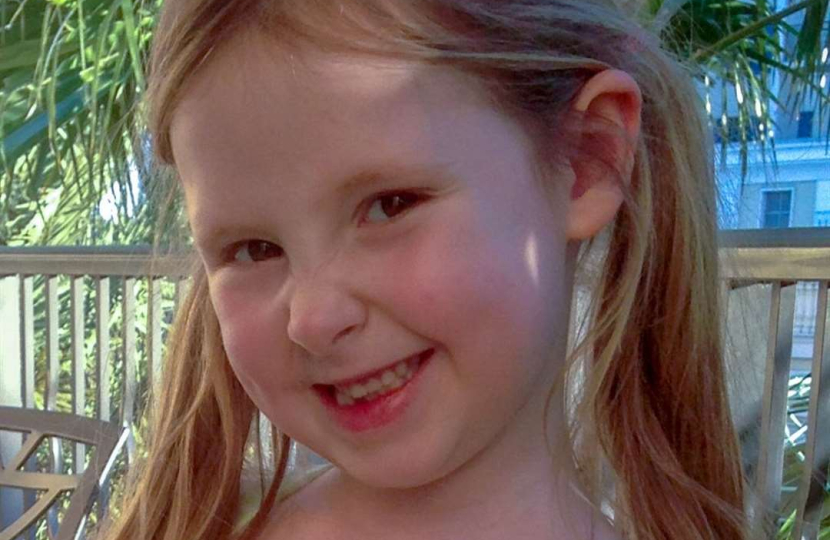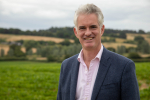
A first-of-its-kind clinical trial for a potential breakthrough in childhood cancer treatment has begun, following years of campaigning and fundraising in memory of a Bures schoolgirl.
Great Ormond Street Hospital (GOSH) in London announced it has started research into CAR T-cell therapy as a possible treatment for diffuse midline glioma (DMG) – a rare and aggressive form of brain cancer.
The trial was green-lit in February, after securing a £1.2 million grant from the GOSH Children’s Charity.
This breakthrough comes almost 10 years after Daisy Brooks, a pupil at Bures Primary School, became the first child to undergo experimental treatment for the cancer at Bristol Children’s Hospital in 2014.
Daisy died on November 17 that year, one day after celebrating her seventh birthday.
Since then, her parents, Louis and Anna, have raised almost £1 million to go towards funding new research into treatments for DMG.
South Suffolk MP James Cartlidge, who wrote to the Medicines and Healthcare Regulatory Agency last year to push for the trial, paid tribute to the Brooks family for their tireless work over the last decade.
“Daisy’s story moved so many people to campaign for this research, in the hope that some good could come from her tragedy,” he said.
“I personally found the debate in Parliament on supporting Daisy’s campaign, with her parents watching on in the chamber, one of the most emotional experiences I’ve known as an MP.
“So, it’s incredibly satisfying to hear that the research we all wanted is now under way.
“Many people in south Suffolk and beyond know of Daisy’s story and the devastating impact that DMG had on the whole family.
“I want to pay tribute to Louis and Anna for their tireless fundraising, which has helped to make a treatment for this terrible disease an ever-closer reality.
“Following campaigning from all those backing this brilliant cause, the Government, along with Cancer Research UK, announced millions of pounds in funding.
“But, inevitably, there is a time lapse between raising funding and securing actual research, given the approvals process involved.
“To hear that the clinical work is now moving forward should bring hope to us all that Daisy and her family’s bravery will leave a lasting legacy.”
Published in the Suffolk Free Press.

